
In 1982, when I started as a trainee game adviser with the GWCT, we had a rule of thumb that it took about eight tons of food per 1,000 pheasant poults to feed through release, shooting and into late winter for those left.
Today, for most shoots, that figure has risen to about 10 tons. If you subtract the two tons of grower pellets that are needed to make sure the poults develop properly, there has been a 33% increase in wheat used.
I have no doubt that a part of this increase is what is needed to feed into the spring. GWCT research in the 1990s showed that the then conventional approach of feeding to the end of March left a hungry gap. A couple of extra months of food provision for the modest numbers left on the shoot means better survival to next season and better wild production because the hens are so much fitter.
It costs very little and is a duty under the terms of the Code of Good Shooting Practice, but it surely does not require that much extra wheat.
Wasteful
Feeding systems have moved on by leaps and bounds over the years and the modern keeper probably has significantly more birds in his charge compared with the 1980s. There has been a big shift to self-help feeders of one sort or another and even where the old system of scattering is still used, it is likely to be with a spinner on the back of a quad rather than by hand on a straw ride. So I’m going to dare to suggest that, on average, we are more wasteful than our grandfathers were.
Self-help feeders are great for allowing birds to feed whenever they want and they can significantly reduce the keeper’s workload, but designing a system where pheasants and partridges can feed but scavengers cannot is pretty hard.
This story is from the {{IssueName}} edition of {{MagazineName}}.
Start your 7-day Magzter GOLD free trial to access thousands of curated premium stories, and 9,000+ magazines and newspapers.
Already a subscriber ? Sign In
This story is from the {{IssueName}} edition of {{MagazineName}}.
Start your 7-day Magzter GOLD free trial to access thousands of curated premium stories, and 9,000+ magazines and newspapers.
Already a subscriber? Sign In

United we stand
Following United Utilities' decision to end grouse shooting on its land, Lindsay Waddell asks what will happen if we ignore our vital moors

Serious matters
An old gamebook prompts a contemplation on punt-gunning
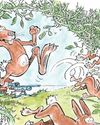
They're not always as easy as they seem
While coneys of the furry variety don't pose a problem for Blue Zulu, he's left frustrated once again by bolting bunnies of the clay sort
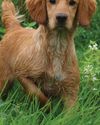
Debutant gundogs
There's lots to think about when it comes to making the decision about when to introduce your dog to shooting

When the going gets rough
Al Gabriel returns to the West London Shooting School to brush up on his rough shooting technique

The Field Guide To British Deer - BDS 60th Anniversary Edition
In this excerpt from the 60th anniversary edition of the BDS's Field Guide To British Deer, Charles Smith-Jones considers the noise they make
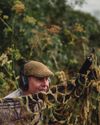
A step too far?
Simon Garnham wonders whether a new dog, a new gun and two different fields in need of protection might have been asking too much for one afternoon's work
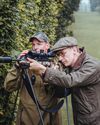
Two bucks before breakfast
A journey from old South London to rural Hertfordshire to stalk muntjac suggests that the two aren't as far detached as they might seem
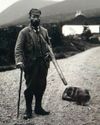
Stalking Diary
Stalkers can be a sentimental bunch, and they often carry a huge attachment to their hill

Gamekeeper
Alan Edwards believes unique, private experiences can help keepers become more competent and passionate custodians of the countryside